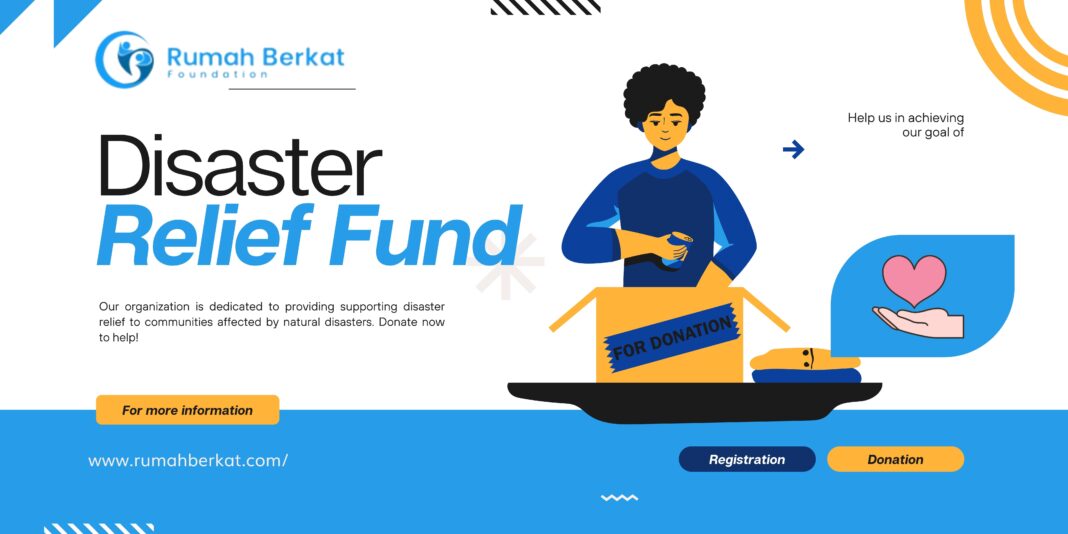When a disaster strikes, seeing the devastation and disruption to so many lives can be heartbreaking. While we often feel powerless in the face of such destruction, there are many ways we can supporting disaster relief efforts to help communities recover. Donating money and supplies or volunteering your time are impactful ways to aid victims and relief organizations.
Providing Financial Support to Trusted Organizations
One of the most efficient ways to help disaster survivors is by providing financial contributions to reputable aid organizations.
Recognized relief agencies have the infrastructure and networks in place to quickly get resources to survivors while also planning for long-term recovery needs.
Research organizations before donating to ensure they have a proven track record of directing funds to relief operations ethically and effectively.
Some reputable disaster relief organizations include:
- Rumahberkat.
- Salvation Army
- Americares
- United Way
- GlobalGiving
Donate directly through an organization’s website or over the phone. Many also accept donations via text message for simplicity.
Watch for special donation drives and matching gift promotions after major disasters which can increase the impact of contributions.
Consider setting up recurring monthly donations to provide consistent support beyond the initial emergency response.
Donating Supplies Most Needed After Disasters
In addition to financial contributions, many relief organizations also accept donated supplies. Consider what items would help meet urgent needs and avoid donations that could overwhelm groups or go to waste.
Most Needed Items:
- Bottled water
- Nonperishable food items (canned goods, protein bars, dried fruits and nuts)
- Cleaning supplies (bleach, mops, buckets, gloves, masks)
- Personal hygiene items (soap, shampoo, toothbrushes, feminine products)
- First aid supplies (bandages, antibiotic ointment, aspirin)
- Blankets, pillows, towels
- Baby items (diapers, wipes, formula)
What to Avoid Donating:
- Used or expired items
- Clothing or shoes (except new socks and underwear)
- Furniture or large household items
- Perishable foods
Consult local drivers and hotlines about current needs and delivery options before collecting items. Organizations’ needs change constantly.
Carefully pack donations to avoid breakage and leaks during transport. Clearly label contents.
Consider sorting supplies by type (hygiene, first aid, etc.) before donating.
Volunteering Your Time and Skills
Donating your time by volunteering with an aid organization is a hands-on way to make a meaningful difference. Relief groups need dedicated helpers before, during, and after disasters.
Ways to Volunteer:
Preparation and Planning
- Help organizations assemble emergency kits and supplies so they are ready to mobilize when disaster strikes.
- Assist with compiling updated lists of emergency contacts, local resources, shelters, etc.
- Aid with proactive preparedness efforts like community education and risk assessments.
Emergency Response
- Answer calls at emergency hotlines to provide information, comfort, and mental health support.
- Distribute water, food, supplies, and cleanup tools to impacted areas.
- Assist with setting up emergency shelters, registration, and coordination.
Recovery Efforts
- Help muck out flood-damaged buildings to clear debris and prevent mold.
- Cook and serve meals for displaced survivors and relief workers.
- Aid with debris removal, home repairs, rebuilding, and other manual labor.
- Provide administrative assistance handling donations and volunteer coordination.
Ongoing Community Support
- Check on vulnerable neighbors and assist elderly or disabled residents.
- Help apply for disaster aid and claims processing for uninsured losses.
- Provide pro bono physical/mental health services for survivors.
- Organize community rebuilding events, meals, and memorials.
Tips for Volunteering:
- Enlist as a trained volunteer before disasters strike so you can be deployed rapidly when needed.
- Communicate any specialized skills, training, or professional credentials that could be useful.
- Ensure you have appropriate tetanus shots or protective equipment for certain tasks.
- Be patient, flexible, and willing to take on whatever tasks are assigned.
- Follow directions from coordinators and avoid acting independently in the field.
- Make a commitment to recovery that lasts beyond the initial emergency. Needs to evolve long-term.
Supporting disaster relief, whether through donations or volunteering, makes a real difference to those reeling from crisis. Though tragic events are inevitable, we each have the power to bring hope, healing, and comfort to survivors.


